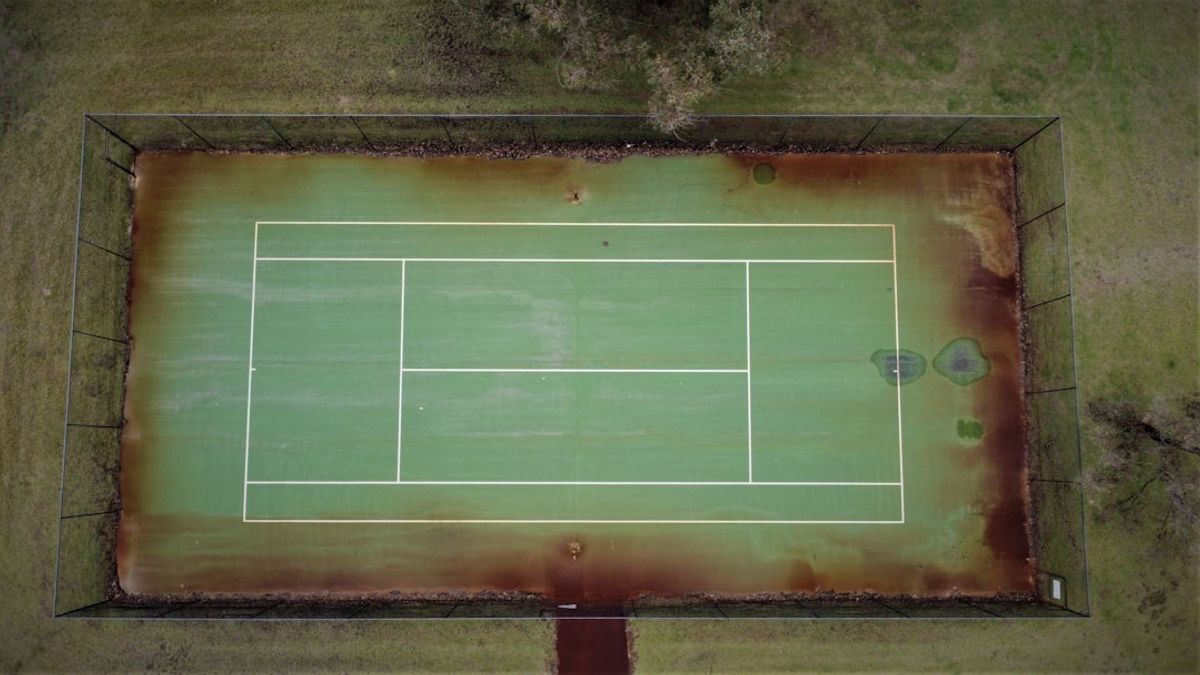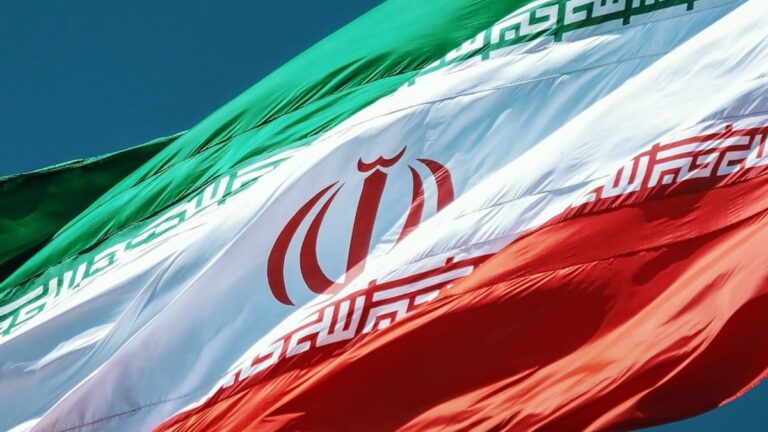blockchain in iranian sports The emergence of blockchain technology is reshaping the landscape of Iranian sports, offering innovative solutions that enhance athlete contracts and fan engagement.

In a country where sports are deeply intertwined with cultural identity, the potential for blockchain to bring transparency and efficiency is significant. By utilizing smart contracts, athletes can secure their agreements on a decentralized platform, ensuring that terms are immutable and accessible to all parties involved. This not only protects the interests of the athletes but also builds trust with fans and sponsors. For a deeper dive, explore AI Robotics in Iranian Sports: Transforming Young Athletes.
For instance, the Iranian Football Federation is exploring blockchain to streamline contract management, aiming to eliminate disputes that frequently arise from misinterpretations of agreements. Furthermore, fan engagement is being revolutionized through the creation of digital tokens, allowing supporters to participate in decision-making processes regarding club activities.

This level of involvement fosters a deeper connection between fans and their favorite teams, transforming passive spectators into active participants. Block
As global trends in sports technology continue to influence Iran, the adoption of blockchain could position the nation as a pioneer in the Middle East, attracting investment and boosting its international sports profile.

The journey of integrating blockchain into Iranian sports is just beginning, and its successful implementation could lead to a more sustainable and equitable ecosystem for all stakeholders involved. Blockchain In Iranian Sports showcases how elite experiences now demand measurable sustainability.
ntation could lead to a more sustainable and equitable ecosystem for all stakeholders involved.
Blockchain technology is rapidly transforming various sectors globally, and the sports industry in Iran is no exception. The introduction of blockchain in Iranian sports is set to revolutionize how athlete contracts are handled and how fans engage with their favorite sports and athletes. By leveraging blockchain technology, stakeholders can ensure transparency, security, and efficiency in managing contracts and enhancing fan experiences.
This technological shift comes at a time when there is a growing demand for innovation and accountability in sports, as fans and athletes alike seek more trustworthy interactions and transactions. The increasing integration of blockchain in Iranian sports is primarily driven by the need for enhanced transparency in athlete contracts. In a landscape where corruption and mismanagement have marred the reputation of various sporting organizations, blockchain offers a solution by providing an immutable ledger that can track contract details and transactions.
Moreover, the technology allows for a more engaging fan experience, as it facilitates direct interactions between athletes and fans, fostering a sense of community and loyalty that is vital in today’s competitive sports environment. For instance, initiatives like tokenized fan engagement platforms enable supporters to vote on team decisions or access exclusive content, thereby strengthening their connection to the athletes. As Iran looks to modernize its sports landscape, the adoption of blockchain technology will play a crucial role in shaping the future of athlete management and fan engagement. The convergence of technology and sports not only enhances operational efficiency but also aligns with global trends that prioritize transparency and digital solutions. As we explore the various facets of blockchain in Iranian sports, it becomes evident that this technology is not just an innovation; it is a necessary evolution for the industry.
- Blockchain technology is enhancing transparency in Iranian sports contracts, ensuring that athletes and organizations can enter agreements with greater trust. This shift not only protects the rights of players but also fosters a more equitable environment in which disputes can be resolved more efficiently.
- The regulatory environment is evolving to support blockchain applications, with Iranian authorities beginning to recognize the potential of this technology. As regulations adapt, we can expect a more structured framework that encourages investment and innovation in sports-related blockchain solutions.
- Innovative solutions are improving fan engagement through direct interactions, such as tokenized assets that allow fans to own a piece of their favorite teams or players. This direct connection enhances loyalty and creates new revenue streams for clubs, exemplified by initiatives where fans can vote on team decisions using blockchain-based tokens.
- Global trends in sports contracts are influencing Iranian sports organizations, as they look to adopt best practices from around the world. This includes the integration of smart contracts, which automate payment processes and ensure that athletes receive fair compensation promptly.
- The future of blockchain in Iranian sports looks promising but faces challenges, including the need for widespread education on the technology and its benefits. As stakeholders collaborate to overcome these hurdles, the potential for blockchain to revolutionize the sports landscape in Iran becomes increasingly tangible.
The Regulatory Landscape – blockchain in iranian sports
Sources & References
The regulatory framework surrounding blockchain technology and cryptocurrency in Iran is undergoing significant changes, which are crucial for the successful integration of blockchain in sports. As the government recognizes the potential benefits of blockchain, including increased transparency and efficiency, there have been moves towards establishing clearer guidelines and regulations for its use. This evolution is essential for fostering an environment where blockchain can thrive within the sports sector.
In recent developments, the Iranian government has begun to adapt its policies to create a more conducive atmosphere for blockchain initiatives. For instance, regulations that support cryptocurrency mining are being revised, which could potentially allow for broader applications of blockchain technology in various industries, including sports. These adjustments are not merely procedural; they signify a strategic pivot towards embracing digital innovation that can enhance operational efficiency.
Moreover, the regulatory landscape will also dictate how blockchain can be utilized in managing athlete contracts. By establishing a clear legal framework, stakeholders can engage in blockchain transactions with confidence, knowing that their agreements are protected by law. This clarity will not only benefit athletes and sports organizations but also enhance the trust of fans and investors in the Iranian sports ecosystem.
The ongoing changes in the regulatory environment signify a shift towards embracing technology in traditional sectors like sports. As the Iranian government continues to refine its approach to blockchain, it lays a foundation for innovative solutions that can address long-standing issues within the sports industry, such as contract disputes and payment transparency. The future of blockchain in Iranian sports will largely depend on how effectively these regulations are implemented and how stakeholders adapt to this new landscape, ultimately paving the way for a more dynamic and trustworthy sports environment.
Enhancing Transparency in Athlete Contracts – blockchain in iranian sports
One of the most significant advantages of blockchain technology in the realm of sports is its ability to enhance transparency within athlete contracts. Traditionally, the management of contracts has been fraught with challenges, including disputes over terms, lack of clarity, and potential corruption. However, blockchain offers a solution that can mitigate these issues by providing a decentralized and immutable record of all contract-related transactions. By utilizing blockchain, athlete contracts can be securely stored and easily accessed by all relevant parties, including athletes, agents, and sports organizations. This transparency ensures that all stakeholders have access to the same information, reducing the likelihood of misunderstandings or disputes.
Furthermore, smart contracts—self-executing contracts with the terms of the agreement directly written into code—can automate various aspects of contract management. This innovation not only streamlines processes but also ensures that conditions are met before any actions are taken, thereby enforcing accountability. The potential for profit-sharing and revenue distribution is another area where blockchain can bring about significant change. With blockchain’s capability to track financial transactions in real-time, athletes can be assured that they will receive their fair share of earnings from sponsorships, ticket sales, and other revenue streams.
This transparency can lead to fairer practices within the industry, as athletes are empowered to monitor their financial interests closely. Moreover, the integration of blockchain technology in athlete contracts aligns with the increasing demand for ethical practices in sports. Fans and stakeholders are becoming more discerning, and they expect organizations to uphold high standards of integrity and transparency. By adopting blockchain, Iranian sports organizations can demonstrate their commitment to these values, ultimately enhancing their reputation and fostering greater trust among fans.
As the landscape of athlete contracts continues to evolve, the role of blockchain technology will be pivotal in ensuring that contracts are not only transparent but also equitable. The implications of this shift extend beyond individual athletes; they have the potential to reshape the entire sports ecosystem in Iran, promoting a culture of fairness and accountability. This transformation could set a precedent for other countries in the region, showcasing Iran as a leader in the adoption of technology for ethical sports management.
Innovations in Fan Engagement
As the sports industry evolves, so too do the expectations of fans. In Iran, the integration of blockchain technology is paving the way for innovative fan engagement strategies that enhance the overall experience for sports enthusiasts. By leveraging blockchain, sports organizations can create more interactive and personalized experiences that foster a deeper connection between fans and athletes. One of the most promising applications of blockchain in fan engagement is the development of digital collectibles and non-fungible tokens (NFTs). These digital assets allow fans to own unique pieces of memorabilia, such as virtual trading cards or exclusive highlights from games. By purchasing these items on a blockchain platform, fans can ensure their authenticity and ownership, creating a new revenue stream for sports organizations while enhancing fan loyalty.
Additionally, blockchain technology facilitates direct interactions between athletes and fans. Through decentralized applications (dApps), fans can engage with their favorite athletes in real time, whether through live Q&A sessions, virtual meet-and-greets, or exclusive content sharing. This direct line of communication not only strengthens the bond between fans and athletes but also allows for a more personalized experience that resonates with the audience. For instance, some Iranian football clubs are already experimenting with platforms that offer fans behind-the-scenes content, fostering a sense of community and involvement.
Furthermore, the integration of prediction markets into sports events is gaining traction, offering fans a new way to engage with their favorite teams. These markets allow fans to place bets on various outcomes, such as game results or player performances, creating an interactive experience that enhances their involvement in the sport. As blockchain enables secure and transparent transactions, fans can participate in these markets with confidence, knowing that their bets are being handled fairly. The potential for enhanced fan engagement through blockchain technology aligns with global trends that prioritize digital solutions.
As sports organizations in Iran look to modernize and attract a younger audience, the adoption of blockchain can provide the tools needed to create meaningful and lasting connections with fans. The future of fan engagement in Iranian sports is bright, with blockchain at the forefront of this transformation, promising not just innovation but also a more vibrant sports culture.
Global Trends Influencing Iran
As Iranian sports organizations explore the integration of blockchain technology, they find themselves influenced by a plethora of global trends that are reshaping the sports landscape. One significant development is the increasing popularity of sports event contracts, which allow fans to purchase rights to specific matches or tournaments. This model not only deepens fan engagement but also creates investment opportunities in the sport, encouraging a more invested and loyal fan base. Iranian sports organizations can harness this trend to enhance their offerings and attract a larger audience.
Moreover, the rising focus on data security and privacy within the realm of sports cannot be overlooked. With organizations gathering extensive data on both fans and athletes, safeguarding this information has become crucial. Blockchain technology, known for its robust security features, offers a reliable solution for managing sensitive data while ensuring transparency. This capability positions blockchain as an invaluable asset for Iranian sports entities aiming to protect their stakeholders.
Additionally, innovative technologies like prediction markets are gaining traction globally, providing new avenues for fan interaction and revenue generation. The success of these markets in other regions serves as a compelling case study for Iranian organizations to adopt similar strategies, enhancing their engagement with fans.
With the global shift towards digital solutions, Iranian sports organizations are prompted to rethink their approaches to fan engagement and athlete management. As fans increasingly demand seamless digital experiences, leveraging blockchain technology can help these organizations meet these expectations while remaining competitive on the international stage. Ultimately, by observing and adapting to these global trends, Iranian sports organizations can position themselves as pioneers in the industry, creating a more transparent, engaging, and equitable sports ecosystem.
Future Outlook
Looking ahead, the future of blockchain in Iranian sports appears promising, yet it is not without challenges. As organizations continue to explore the potential applications of blockchain technology, several factors will influence its successful integration into the sports landscape. One of the most significant challenges is the need for a robust regulatory framework that supports blockchain initiatives. While progress is being made, the establishment of clear guidelines and regulations will be crucial for ensuring that sports organizations can operate within a legal and secure environment. Stakeholders must work collaboratively with government authorities to shape policies that foster innovation while protecting the interests of athletes and fans.
Additionally, the adoption of blockchain technology will require a cultural shift within the sports industry. Embracing new technologies often faces resistance, particularly in traditional sectors like sports. Organizations must invest in education and training to ensure that all stakeholders understand the benefits of blockchain and are equipped to leverage its capabilities effectively. The potential for blockchain to enhance transparency in athlete contracts and improve fan engagement is immense. For instance, smart contracts can automate payment processes, ensuring that athletes receive their dues without delays, thereby fostering trust.
However, realizing this potential will require a concerted effort from all stakeholders, including sports organizations, government authorities, and fans themselves. By fostering a culture of innovation and collaboration, Iranian sports can harness the power of blockchain to create a more equitable and engaging environment. In conclusion, as we move into 2025 and beyond, the integration of blockchain technology in Iranian sports represents a significant opportunity for transformation. By prioritizing transparency, security, and engagement, the sports industry in Iran can position itself as a leader in the global sports landscape, setting a precedent for how technology can redefine the future
To effectively integrate blockchain technology into the Iranian sports sector, stakeholders can take the following practical steps:. Blockchain In Iranian Sports showcases how elite experiences now demand measurable sustainability.
t.
Action Steps
Strategic Actions for Stakeholders in Iranian Sports
- Monitor and adapt to the evolving regulatory landscape surrounding blockchain and cryptocurrency in Iran.
- Invest in blockchain solutions that enhance transparency and security in athlete contracts.
- Explore innovative technologies to improve fan engagement and leverage digital solutions.
- Stay informed about global trends in sports contracts and fan engagement to inspire local initiatives.
- Prepare for the future developments and challenges posed by the integration of blockchain in the sports sector.
Introduction to
An overview of how blockchain technology is being integrated into the sports sector in Iran, focusing on contracts and fan engagement. Blockchain In Iranian Sports showcases how elite experiences now demand measurable sustainability.
Data Points to Watch
- Blockchain technology is being recognized for its potential to enhance transparency in sports contracts in Iran . Ynetnews
- The regulatory framework for cryptocurrency mining in Iran is evolving, which could support blockchain applications in sports . Ynetnews
- Innovative blockchain solutions are being developed to ensure transparency in profit-sharing, applicable to athlete contracts . Markets Financial Content
- Advancements in blockchain technology are expected to improve operational efficiencies in various sectors, including sports . Proactive Investors
- The integration of prediction markets in sports events is gaining traction, offering insights into fan engagement strategies . CNBC
Blockchain In Iranian Sports showcases how elite experiences now demand measurable sustainability.








